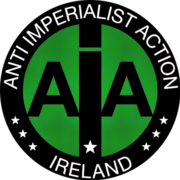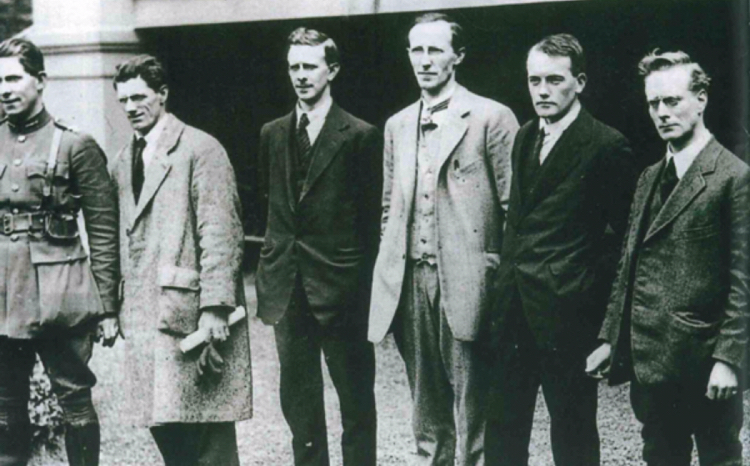08.03.2021
The second in a 3 part series by Irish Socialist Republican Sean Doyle
Just to recap on the conclusion of part 1, The government of the Republic, due to British and native hostilities threatened by their joint force, had but one option, to set about to destroy the treaty with an immediate war against the British garrison remaining in Dublin. A motion to approve this declaration was only narrowly defeated at the IRA convention on the 18th of June.
Then next came the assassination on his doorstep in London, of field marshal Henry Wilson on the 22nd of June by a local IRA unit. Wilsons’s murder provoked an outrage and an immediate letter from Lloyd George to Collins demanding action against the forecourt’soccupants which the British chose and were led to believe were responsible. Wilson had been recently appointed Military Advisor to the Northern Ireland government. On the 24thof June the British alleged impatience with their pup, the provisional government, ordered Macready their GOC in Dublin to move against the forecourts.
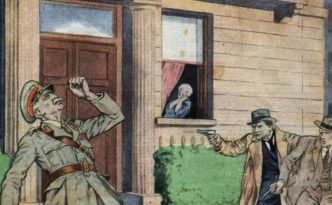
But Macready didn’t act, he went to London and in a debate on the 26th of June he persuaded the government that if Collins’ government failed to act, they would regard the treaty as broken. Collins’ ordered the evacuation of the forecourts on the 26th of June but it went unheeded. At 4am on the 28thof June, using artillery they got from Macready, they opened fire.

In advance of the 26th of June, before the first shots were fired, they had received from the British nearly 12,000 rifles, 1.7 million rounds of ammunition, plus 79 Lewis guns, 6 armoured cars and a large number of trucks. Once the counter revolution began the British government ordered Macready to give Collins whatever he asked for, even troops if the necessity arose. Just to recap, it is obvious a lot more was going on behind the scenes from mid-May and the month of June, which I think is worthy of researching through diaries here and in London. For example, when Collins’ men wiped out the British agents in one operation Griffiths go between said to Lloyd George “I suppose that’s the end of dialogue”, he responded “tell him to hold his nerve, they got what they deserve, taken out by counter jumpers”. I have no doubt this period needs further investigation which I am eager to pursue. There is a lot of questions and unfinished business behind closed doors to unearth, but that is for another day. Let’s get back to the extremely outnumbered revolutionary republicans.
The IRA could pit only 3,000 rifles with 120 rounds a piece and not much else. The British pup, the provisional Free State government was in act and deed to anyone who ever doubted, become a collaborative counter revolutionary force. They enjoyed, in Dublin, the advantage of 2,500 of their 10,000 troops who were stationed. They also had the money and other resources necessary for rapid recruitment. They had 30,000 under arms by November and 50,000 by the end of the counter revolution.
The odds against the republican government was well outlined by Ernie O’Malley “some people have great foresight, the Free State would concentrate on Dublin, militarily and politically, with British supplies, they could recruit among British ex-soldiers, dispandantIrish regiments, men who had been careful to conceal their opinion during the Tan War, or who had been hostile to us, would help them actively, there would be no shortage of money, the middle class was in power and could use its imperial connections, Irish catholic clergy would support them, a powerful open and hidden influence, unless Connaught and Munster men moved into Leinster, effective opposition would be broken up piece meal and we would soon be crushed”. He was right in so many ways which I will elaborate on shortly.
The forecourt garrison surrender on the 30th of June, and other republican strongholds in Dublin had fallen by the 5th of July. Casualties were 65 dead and 281 wounded, the most eminent casualty was that great republican, left for dead by the British in 1916, he had sustained so many bullet wounds, I refer to Cathal Brugha who was shot down when alone, he rushed the enemy’s guns rather than surrender. His action was to be followed by another great loss to the Republic, the man I have quoted and his prediction as to what was going to develop as we continue. A true republican Ernie O’Malley.
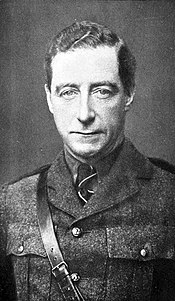
But the counter revolutionaries were also counting their dead, Arthur Griffith died of a stroke, and on the 22nd of August, Michael Collins’ was shot dead in an ambush in his home town Cork at Béal na mBláth, walking distance from his birth place when he got out of his British supplied armoured vehicle. Within 10 days the Free Staters had lost its principal architects, the 2 leading signatories of the treaty, Collins’ was replaced by WT Cosgrave, since the counter revolution began,they were pre-occupied with aping the Brits, they issued a directive to the press on censorship, laying down that the troops must always be referred to as Irish Army, The National Army, National Troops or simply Troops, where as their opponents must be described as irregulars. The propaganda and the main components of the enforced British pup of the provisional government of Ireland, while lining up to assert their authority and trying to legitimise their enforcement of a British dominion as Irish freedom.
There was one final component, and Collins’ had already made a start to assure the hierarchy, and on the 10th of April they decided to consult the Bishops about article 10 in the draft constitution, relating to elementary education as a right. Collins’ on the 12th of June, said he had agreed to Arch Bishop Byrnes for an advanced copy of the draft constitution. Doctor Byrnes Lenten Pastoral of the 26th of February, was particularly supportive of the government, saying that Irish people, for the first time in centauries had charge of their own destiny. The line was re-iterated in a statement issued by the general meeting of the Bishops at Maynooth on the 26th of April, presided over by Cardinal Logue and read at all masses on the 7th of May. It went on to say, the best and wisest course for Ireland is to accept the treaty. The IRA claim to independence of civil authority was denounced as an immoral usurpation. But yet again on the 4th of October, the provisional so-called government looked for a further statement from the Bishops Autumn meeting at Maynooth on the 10th of October. The Bishops joint pastoral supported the provisional government without reservation.
You may ask why? All this going back again and again for divine blessing for their authority, well it is about to become clear. The pastoral message “our country, that but yesterday was so glorious is now a by-word before the nations for a domestic strife, as disgraceful as it is criminal and suicidal, a section of the community, refusing to acknowledge the government set up by the nation have chosen to attack their own country as if she were a foreign power, forgetting apparently that a dead nation can not be free, they have deliberately set out to make our mother land as far as they could, a heap of ruins, they carry on what they call a war, but which, in the absence of any legitimate authority to justify it, is morally, only a system of murder and assassination of the national forces. For it must not be forgotten that killing in an unjust war is as much murder before God as if there were no war”.
Can you believe that quote, that killing in an unjust war is as much murder before God as if there were no war, so what of British occupation of our country, was that a just war? Or murder and assassination over 800 years. Was the murder of your priests, but as usual, always, again, supporting the established rule?More hypocrisy and self-preservation while condemning resistance to plunder an occupation as sinful, you are blessing the invader and supporting, morally, their crimes against humanity. The pastoral letter went on to excommunicate all who persisted in such actions, to insist that in all this, there is no question of mere politics, but what is morally right or wrong, and to impress on the people the duty of supporting the national government.
The timing was no coincidence, published in the newspapers on the 11th of October, a week after the provisional pup governments offering of an amnesty was designed to temper criticism of the special power’s resolution, which was then before the Dáil. This empowered military courts to impose the death penalty is cases involving republicans unauthorised possession of arms. The fact that the British provisional government received such unequivocable church support at this critical moment, greatly strengthened their moral authority which they sought over that period of time.
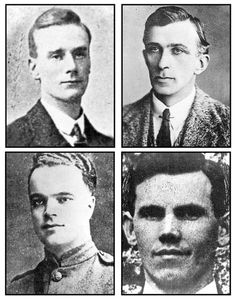
The special powers regulations were brought into force when the amnesty expired on the 15th of October. The catholic church state alliance was re-Iterated by the reading of the joint pastoral in all churches on the 22nd of October. Excuse the pun, but the republicanfate was sealed, the executions of opposition was about to commence. All the methods of the British were now being carried out by their pup, the provisional government in the counter revolution. Master and Pastor, absolution for execution, executions began within a month. The most celebrated victim, of what became a notorious policy was Erskine Childers. He was arrested at his cousin’s house in Annamoe in Co. Wicklow, he had a small, pearl handled 22 pistol, given to him recently as a souvenir by Michael Collins’. He was found guilty by a military court and executed by firing squad on the 24th of November. Next was a recommendation of the Chief of Staff, General Mulcahy, that 4 imprisoned IRA leaders be executed. Rory O’Connor, Liam Mellows, Dick Barrett and Joe McKelvey, in prisonsince the summer, since the fall of the forecourts. They were taken out of their cells in Mountjoy Jail and shot in the prison yard. Rory O’Connor had been best man at Kevin O’Higgins wedding 12 months before. O’Higgins said “ultimately our government is based on force, must meet force with greater force if it is to survive”.
Late 70’s or early 80’s of republicans wereexecuted by way of official reprisal. Just like the Brits orders to the Tans and auxiliaries and about twice as much were killed in unofficial reprisals, not to mention our great lose to the republic in 1916 in the War of Independence. You know the more I think about one of James Connolly’s great quotes, had it been heeded“the freedom of the working class must be the work of the working class”.
Why would you concede to a drafted document, guaranteed to destroy the unity we had during their murderous war against us in the War of Independence, an absolutely impossible treaty for the republic to accept, even if you felt you were pressurised into doing so. Breaking faith with the enemy by refusing to put it on the table for discussion in the Dáil should have been the better choice,rather than ripping republicans asunder, if of course the republic was your first concern, not withstanding the political opportunity for the money class to avail of British help to crush the revolution and keep the poor poor and make the rich richer.
That seed of greed that the British supplied in the formation of their provisional government, which they sowed in the minds of the money class. They then planted it in Irish soil and nurtured and watered it by the blood, flesh and bones of republicans who would not yield or consider anything less than the republicanideals, as outlined in the Proclamation and the democratic program. Have no doubt this was a revolution, a full-blown class war, when you look at the statements and the positions taken by key personal at home and abroad, how we were treated in Paris. The Western hypocrisy, break from the Eastern Block, you can have your freedom and recognition, break from Western British domination, I’m afraid you will be denied, no salvation. James Connolly said “the British had no quarrel with some Irish men getting rich, the only thing they were fighting about was the skin of the Irish worker, who got the biggest piece”.
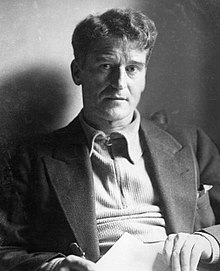
Ernie O’Malley said “the middle class was in power and could use it’s imperial connections, there will be no shortage of money, Irish catholic clergy would support them, a powerful open and hidden influence”.
